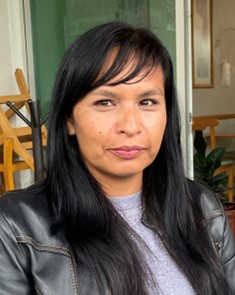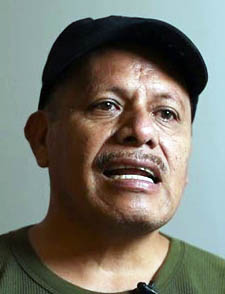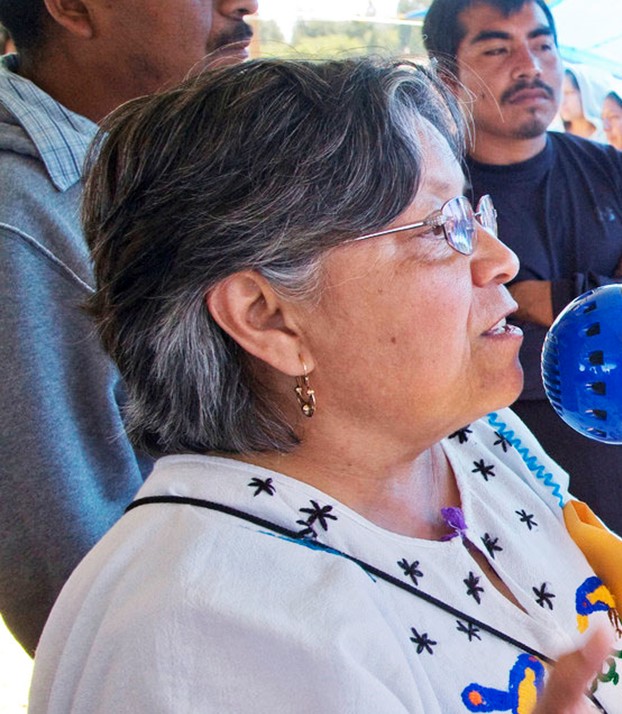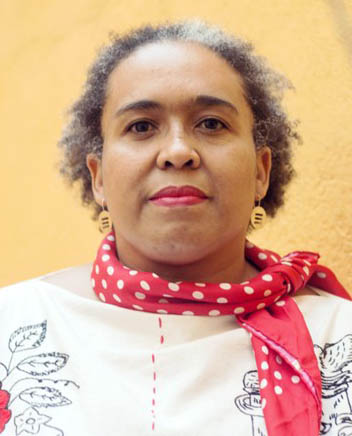|
|
|
|
The weekly newsletter of the México Solidarity Project |
|
|
|
Every issue archived online at mexicosolidarityproject.org |
|
January 4, 2023/ This week’s issue/ Meizhu Lui, for the editorial team |
|
|
Photo by Annick Donkers/LatinContent/Getty Images |
|
The México Solidarity Bulletin: A Panoply of Voices |
|
Time to turn our dial to a new year! In this first issue of 2023, we’re looking ahead to the developing issues we’ll be covering in the months to come — and reflecting on the history that continues to shape our present and future.
This issue starts the third year of our sweet and short little newsletter. We’ve so far showcased, in over 100 weekly issues, up-close and personal interviews with dedicated activists struggling for justice on both sides of the border.
These progressives have come from a wide range of political perspectives, from Zapatistas and Morenistas to Marxists and workplace organizers with no particular political affiliation. They’ve all talked candidly about the challenges they’re facing. They’ve taken us into arenas of innovative social change as varied as art galleries and industrial shop floors.
Most of us only hear about México via mainstream media that filter the “news” through a US Monroe Doctrine lens and the point of view of Mexican elites tied into US corporate interests. Our Bulletin offers up the only regular source of information — in both English and Spanish — that looks at events through working-class eyes and takes as a given México’s right to control its own affairs.
We lift up many diverse voices. We showcase what Mexicans themselves think about their country, and we’ve valued all these perspectives. We hope you have too. And if you have, please help us spread the word in 2023. We’re looking for folks to join our editorial team, in any number of different roles, from assembling the newsletter to translating interviews and suggesting good folks to highlight. Interested? Please drop us an email.
But, most of all, please help us spread the word and introduce this México Solidarity Bulletin to your friends and fellow workers who just might be interested in building solidarity across borders. The easiest way to do that? Sharing! Just forward this issue to potential subscribers in your orbit. Please also don’t forget you can now meet us on Facebook and dialogue on anything you read here.
All of us at the México Solidarity Bulletin see solidarity as more than an abstraction. Solidarity only grows, we believe, from respect and love between real people, feelings we hope you feel from reading our Bulletin. Thanks so much! |
|
|
|
Don’t miss an issue. Subscribe to our weekly México Solidarity Bulletin! |
|
|
|
|
Coming in 2023: New Developments on Key Fronts |
|
The year ahead — the last complete year of AMLO’s presidency — will begin an important transitional moment for México’s future. Throughout the year, we’ll be featuring interviews that explore the changes and challenges that face progressives inside México and Mexican@s in the US. We’ll be building on the insights activists like these below have shared with us over the past year. |
|
|
Alejandro Torres, a university student at UNAM, serves as a leader in the Morena party’s Youth Section.
“The murder of 43 Ayotzinapa students in 2014 electrified young people of my generation and turned us from passive dissatisfaction into an activist social force. The Morena party formed in 2014 — and AMLO’s election in 2018 —gave young people for the first time in history the space to participate directly in politics, not just in social movements. Hope returned to us. I’m ready!” Read more. |
|
|
Alejandra Morales Reynoso, the general secretary of the independent union SINTTIA, joined with her co-workers to pull off a historic win against an entrenched company union in 2022. Her union now represents 7,000 auto workers at the huge GM plant in the city of Silao. “I’ve been working at GM since 2010 as a painter of the Sierra and Cheyenne trucks. Our pay amounts to US $2.00 an hour. We can’t afford cars. We know that US auto workers own cars. Why can’t we be paid enough to own a car? Some of us can’t even afford to live in houses with sewage services! Organizing for our union gives me strength.” Read more. |
|
|
Verónica Cruz Sánchez founded the women’s rights organization Las Libres in Guanajuato. Her group now serves women in Texas who’ve lost their abortion right. |
|
|
The lives of Clemente Rodríguez Moreno and his family changed forever in 2014 when their son became one of 43 students at the Ayotzinapa Rural Teachers’ College who suddenly disappeared.
“Students called to tell us our sons were missing. We wanted to go with clubs and machetes to defend our children. We went to the police, to the hospitals, to government offices. People we met said to us, ‘Ask the police.’ But we couldn’t get any information and we couldn’t find our sons. Through this ordeal, we all realized that criminal organizations worked together with the police.” Read more. |
|
|
Rosalinda Guillen began working as a farmworker at the age of ten in the fields in Skagit County, Washington. She founded Community to Community to support rural people and sustainable agriculture policies.
“Like so many of us who come from a farming tradition, I am a person of the land. I loved picking strawberries. In the fields, you can feel beauty everywhere. But then, in the 1970s and 1980s, pesticides came into use. Workers got sick. Farm work has become so dangerous and exploitative that workers now hate what they once loved. The agriculture industry has beaten the desire to connect to the land out of us. We get chewed up and spit out.” Read more. |
|
|
Writer, playwright, and freelance journalist Kurt Hackbarth works as a Mexican citizen based in Oaxaca.
“The Summit of the Americas” began in 1994 in the wake of NAFTA, as a vehicle to give the US a platform to proselytize the benefits of free trade. When AMLO refused go to the June 2022 Summit due to the US unilateral decision to exclude member governments, other nations either followed suit or publicly criticized the US at the Summit. AMLO has led Latin American nations to assert their sovereignty.” Read more. |
|
|
|
Share all this! Just forward this México Solidarity Bulletin issue to a friend! |
|
|
|
|
The Present and Future Grow Out of Our Past |
|
México and the United States remain joined at the hip, but these two nations draw from quite separate origins and histories. Each and every week, our México Solidarity Bulletin brings you stories that illuminate those conditions and situations that distinguish our two countries and those that bring us together. |
|
Christina Heatherton, a professor of American studies and human rights at Trinity College, recently published Arise! Global Radicalism in the Era of the Mexican Revolution (University of California Press, 2022).
“Into the early 20th century, everything from colonial dispossession and imperial rule to military aggression and capitalist immiseration were constantly forcing people to move. There are astounding ways in which that movement produced unanticipated alliances and political formations. The Magon brothers had to flee México to the US. The party they formed played key roles in strikes leading up to the Mexican Revolution, but they also did significant organizing of US workers into the IWW.” Read more. |
|
|
Vicky Hamlin edits our México Solidarity Bulletin cultural coverage. Her father, Marston Hamlin, spent time at the Taller Gráfica in México City.
“The Taller, founded in the 1930s, would become a hotbed for revolutionary-minded artists, supporters of the ideals of the Mexican and Russian Revolutions, then still recent events. Their art carried messages supporting social change that were accessible to all. It’s a Western elitist view that socialist artists produced ‘propaganda’ and not art. México had a different tradition. The Taller produced posters in the 1930s to help President Cárdenas promote his social programs. During the same period, artists in the US were similarly hired to promote FDR’s New Deal, and Mexican and US artists collaborated during those years.” Read more. |
|
|
Mónica Moreno Figueroa, a Black-mestiza sociologist, has focused on "race” and racism in México and Latin America.
“México experienced centuries of mixing before colonial rule ended. After the Mexican Revolution in 1910, mestizo was adopted as the national identity and became a building block of the new nation, to supposedly create unity without racial distinctions. So the designation of mestizo and the promotion of mixing, mestizaje, was a conscious ideological and political project of national formation in the 19th and 20th centuries. But mestizaje has also been a basis for racism, an assimilation project that promotes whitening and cultural homogenizing while, at the same time, excluding the complex reality of the Indigenous and Black nations that ended up in what is now México.” Read more. |
|
|
Anne Lewis makes media that creates opportunity for social change. She has documented the life of the radical labor organizer Emma Tenayuca.
“It was 1938. Pay was 6 cents a pound. When the company slashed the wage to 4 cents with no warning, the workers’ indignation boiled over. Some 10,000 Mexican@ men, women, and children went out on strike: It was a community uprising! Emma had joined the Communist Party and organized the unemployed. She became known, beloved even, for her fiery speeches and uncompromising defense of working people. Based on that reputation, she was elected by the pecan workers to lead their strike. She was all of 21.” Read more. |
|
|
An auto worker for 28 years in Minnesota, Rob McKenzie wanted to find the truth about an attack on fellow Ford workers at a plant near México City in 1990. He shares that truth in his book, El Golpe: US Labor, the CIA, and the Coup at Ford in México.
“When Ford cut wages by 40 percent, workers threatened action. When they came to work, there found 300 thugs posing as ‘employees’ wearing Ford plant uniforms inside the facility. Nine workers were wounded by gun fire and one died. This was a massive operation, above and beyond what it would take to resolve a simple labor dispute. It seemed like an attempt to wipe out an entire movement, not just at Ford, but in all México. As I kept investigating, the shadowy forces behind the assault began to take more substantial shape in the form of the CIA.” Read more. |
|
|
|
Recent news reports and commentaries, from progressive and mainstream media, on life and struggles on both sides of the US-México border |
|
Kate Linthicum, Why is AMLO one of the world’s most popular politicians? We took a road trip through México to find out, Los Angeles Times. The answer starts with symbolic gestures: Previous leaders resided in México’s elegant presidential palace and traveled the world on private jets. López Obrador lives in a small apartment inside his downtown office and flies in coach.
Alejandro Páez Varela y Álvaro Delgado Gómez, García Luna podría pagar para exculpar a una élite: Guadalupe Correa. “Como Raniere”, SinEmbargo. Genaro García Luna, exsecretario de Seguridad Pública federal durante el Gobierno de Felipe Calderón Hinojosa y acusado de mantener nexos con el narcotráfico, está a la espera de un juicio trascendental en Estados Unidos pues él podría ser el único personaje que reciba un castigo a pesar de las oscuras redes que envuelven a otras figuras políticas en México.
Diego Lasarte, Latin America's pink tide is preparing for the green revolution, Quartz. After victories in México and other key Latin American nations, left-led governments have the chance to enact meaningful forestry, agricultural, and energy reforms.
México acumuló el 20% de los asesinatos de periodistas en el mundo durante 2022, Animal Politico. De acuerdo con Reporteros Sin Fronteras, cerca del 80% de los periodistas asesinados en 2022 fueron violentados por causas relacionadas a su profesión o con los temas que trataban.
Fabiola Sanchez and Fernanda Pesce, Femicides in Mexico: Little progress on longstanding issue, Independent. Officials have for decades recognized México’s high femicide rate and violence against women as a major problem.
Alejandro Alegría, Obtuvo el gobierno federal ingresos por $5.9 billones, La Jornada. Los ingresos del sector público ascendieron a 5 billones 944 mil millones de pesos en enero-noviembre, monto que se tradujo en un avance de 4.9 por ciento respecto al igual periodo del año pasado.
AMLO proposes changes to law used to expel foreigners, México News Daily. AMLO is seeking to protect the rights of all nationalities inside México, emphasizing that, unlike previous governments, his administration had never expelled any foreigners under the Constitution’s Article 33.
Eduardo Mendoza, Diputados de Morena bajarán espectaculares de Claudia Sheinbaum, sdpnoticias. Luego de varias quejas, diputados de Morena anunciaron que los espectaculares de Claudia Sheinbaum serán retirados.
Leigh Thelmadatter, In fighting globalism, the Zapatistas brought the world to Chiapas, México News Daily. The Zapatistas had impeccable timing. The ruling PRI had severely weakened. And instead of limiting their actions to petitioning the Mexican political system, the Zapatistas reached out internationally via contacts and the Internet.
Silvia Ribeiro, Golpeadores transgénicos, La Jornada. Cierra 2022 con la amenaza de demanda que Estados Unidos impone a México por restringir la importación de maíz transgénico y el uso de glifosato. |
|
|
The México Solidarity Project brings together activists from various socialist and left organizations and individuals committed to worker and global justice who see the 2018 election of Andrés Manuel López Obrador as president of México as a watershed moment. AMLO and his progressive Morena party aim to end generations of corruption, impoverishment, and subservience to US interests. Our Project supports not just Morena, but all Mexicans struggling for basic rights, and opposes US efforts to undermine organizing and México’s national sovereignty.
Editorial committee: Meizhu Lui, Bruce Hobson, Bill Gallegos, Sam Pizzigati, Courtney Childs, Victoria Hamlin, Agatha Hinman, Steven Hollis, Daniel McCool, Betty Forrester. To give feedback or get involved yourself, please email us! |
|
|
|
Subscribe! Get the México Solidarity Bulletin in your email box every week. |
|
|
|
Web page and application support for the México Solidarity Project from NOVA Web Development, a democratically run, worker-owned and operated cooperative focused on developing free software tools for progressive organizations. |
















